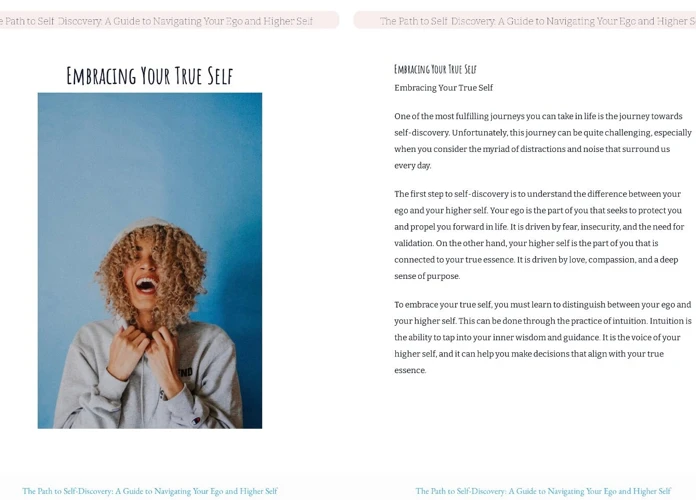Contents
- Welcome to the Journey of Self-Discovery through Intuition
- What is Intuition?
- The Importance of Self-Discovery
- How Intuition Can Help You Discover Yourself
- Nurturing and Enhancing Your Intuition
- Overcoming Obstacles to Intuition
- Intuition and Personal Growth
- Conclusion
-
Frequently Asked Questions
- 1. Can everyone develop their intuition?
- 2. Is intuition the same as instinct?
- 3. How can I differentiate between intuition and fear?
- 4. Can intuition help me in my relationships?
- 5. Are there any benefits to practicing mindfulness for intuition?
- 6. Can intuition be developed through creative activities?
- 7. Can external influences affect our intuition?
- 8. Can journaling help in strengthening intuition?
- 9. Can intuition guide us in making major life decisions?
- 10. Can intuition be developed along with logical thinking?
- References
Welcome to the Journey of Self-Discovery through Intuition
Embarking on a quest to understand oneself is a captivating and transformative journey. With each step, we uncover hidden depths, unravel mysteries, and forge a stronger connection to our true selves. One powerful tool that can guide us along this path is our intuition. It is the inner whisper that knows us better than we know ourselves, leading us towards our most authentic and fulfilling lives. In this article, we will explore what intuition is, the significance of self-discovery, how intuition can aid in the process, ways to nurture and enhance our intuitive abilities, obstacles that hinder our intuition, and the profound impact intuition can have on personal growth. So, let us embark on this captivating adventure that is sure to illuminate the uncharted territories of our being.
What is Intuition?
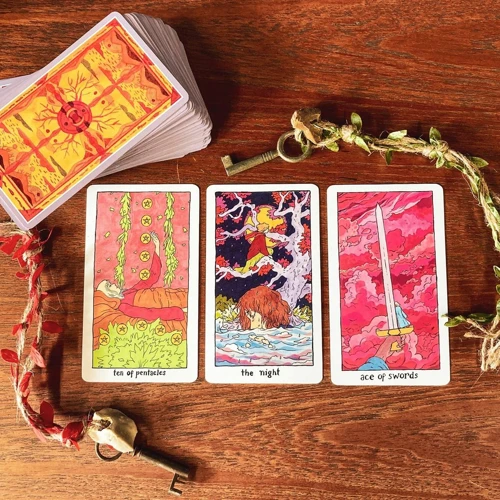
Intuition is a fascinating and enigmatic aspect of human consciousness. It is that subtle inner knowing or insight that arises within us, seemingly without logical explanation. While it may be difficult to define or quantify, intuition is often described as a deep sense of understanding or a gut feeling that guides us in making decisions or perceiving situations. It goes beyond conscious reasoning and taps into a realm of knowledge that lies beneath the surface of our conscious awareness. Intuition can manifest in various ways, such as a sudden flash of inspiration, a feeling of certainty, or a subtle sense of unease. It is a powerful tool that can provide valuable insights and guidance on our journey of self-discovery. By tapping into our intuition, we can access a vast wellspring of wisdom and gain a deeper understanding of ourselves and the world around us. Intuition can offer us glimpses into our hidden desires, passions, and purpose, helping us navigate through life with clarity and purpose. It can also serve as a bridge between our conscious and subconscious minds, providing access to deeper levels of awareness and understanding. Honing our intuition and learning to trust its guidance can be incredibly beneficial in our quest for self-discovery. Want to learn more about the power of intuition? Check out this insightful article that delves deeper into the subject.
The Importance of Self-Discovery
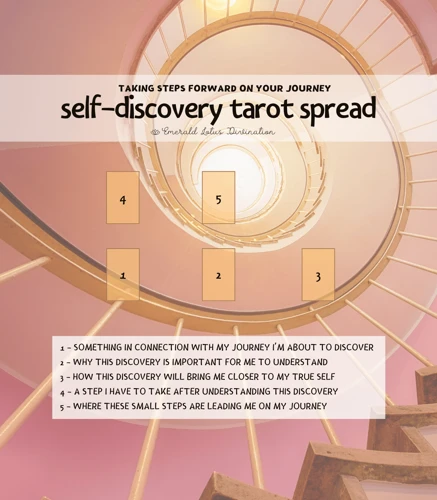
Self-discovery is a profound and essential aspect of personal growth and fulfillment. It involves delving deep into our thoughts, emotions, beliefs, and experiences to gain a deeper understanding of who we truly are. The journey of self-discovery enables us to uncover our strengths, weaknesses, passions, and purpose in life. It allows us to identify our core values and align our lives with our authentic selves. Without self-discovery, we may find ourselves living lives that are dictated by external expectations or societal norms, leading to a sense of emptiness or confusion. By embarking on a journey of self-discovery, we gain the power to make conscious choices that are in alignment with our true selves, leading to a greater sense of fulfillment and contentment. Self-discovery also fosters self-compassion and acceptance, as we come to embrace all aspects of ourselves, both positive and negative. It allows us to break free from limiting beliefs and patterns that may be holding us back from reaching our full potential. Ultimately, self-discovery is a transformative process that ignites personal growth and empowers us to live life authentically and passionately. Interested in exploring intuitive healing practices as a way to deepen your self-discovery journey? Check out this insightful article to learn more about the benefits they offer.
How Intuition Can Help You Discover Yourself
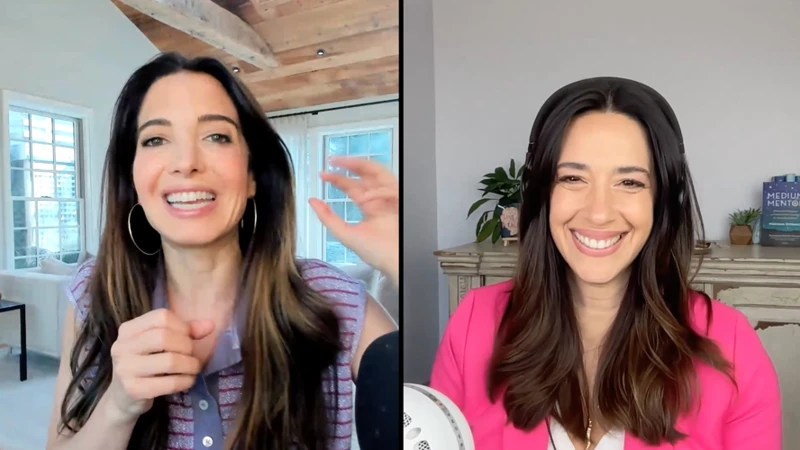
Intuition serves as a guiding light on our journey of self-discovery, offering valuable insights and revelations along the way. By tapping into our intuitive abilities, we can gain a deeper understanding of ourselves and unravel the intricacies of our being. One way intuition helps in self-discovery is by allowing us to listen to our gut feelings. These subtle sensations provide hints and clues about our true desires, passions, and the paths we should pursue. Intuition aids in recognizing patterns and synchronicities, which can reveal hidden connections and meanings in our lives. When we trust our inner voice and follow its guidance, we are more likely to make choices that align with our authentic selves and lead to personal growth and fulfillment. Intuition is not just about making decisions; it is also about being open to the wisdom that lies within us. It enables us to uncover layers of our being that were previously hidden and empowers us to embark on a transformative journey towards self-discovery. To further develop your intuitive skills, consider exploring the realm of clairvoyant intuition development, which can enhance your ability to tap into your inner wisdom and gain deeper insights into yourself and the world around you.
1. Listening to Your Gut Feelings
One of the key ways to tap into your intuition and embark on a journey of self-discovery is by listening to your gut feelings. Our gut feelings, often referred to as our “inner knowing,” are those instinctive responses that arise within us without conscious reasoning. It manifests as a subtle feeling deep within our stomachs, a sensation that something is either right or wrong. Paying attention to these intuitive signals can provide valuable insights and guidance in our lives. It requires us to pause, quiet our minds, and tune into our bodies. When faced with a decision or a situation, take a moment to check in with yourself. Notice any sensations in your gut – is it tight or relaxed? Do you feel a sense of ease or discomfort? Trusting these gut feelings allows us to align ourselves with our inner wisdom and make choices that are in harmony with our authentic selves. However, it’s important to note that distinguishing between intuition and fear or anxiety can sometimes be challenging. One way to make this distinction is by paying attention to the overall energy of the situation. Genuine intuition tends to bring a sense of calm and clarity, while fear-based reactions often generate feelings of panic or unease. By honing your ability to listen to your gut feelings, you can enhance your intuition and embark on a profound journey of self-discovery.
2. Recognizing Patterns and Synchronicities
Recognizing patterns and synchronicities is an essential aspect of harnessing the power of intuition for self-discovery. Patterns are recurring themes or sequences of events that can offer unique insights into our lives and inner workings. Synchronicities, on the other hand, are meaningful coincidences that occur seemingly by chance but hold symbolic significance or deeper connections. The ability to recognize these patterns and synchronicities requires a heightened sense of awareness and an open mind. By paying attention to recurring themes in our experiences, relationships, dreams, and even the natural world, we can gain valuable insights into ourselves and our journey. These patterns might manifest as repeating numbers, recurring symbols, or even similar situations or relationships with different people. When we start recognizing these patterns, we begin to understand the underlying messages they carry and how they relate to our own personal growth and self-discovery. Keeping a journal or creating a visual representation, such as a mind map or a table, can be useful in documenting and analyzing these patterns. By examining and reflecting on the patterns we observe, we can uncover deeper truths about ourselves and the world. Additionally, synchronicities can act as signposts or guideposts on our journey, nudging us in the right direction or reaffirming our choices. These serendipitous occurrences often hold personal meaning or serve as reminders of the interconnectedness of all things. By remaining open to these synchronicities and trusting our intuitive sense of their significance, we can navigate our path of self-discovery with greater clarity and purpose. Recognizing patterns and synchronicities is just one way intuition can aid us on our journey of self-discovery. To explore more about the benefits of intuitive practices, including the development of clairvoyant intuition, check out this informative article.
3. Trusting Your Inner Voice
Trusting your inner voice is an essential aspect of harnessing the power of intuition and self-discovery. Your inner voice, also known as your inner wisdom or intuition, is that instinctive knowing that resides deep within you. It is the voice that speaks softly but clearly, guiding you towards what feels right and authentic for you. Building trust in your inner voice allows you to navigate through life with confidence and make decisions that align with your true self.
To cultivate trust in your inner voice, it is crucial to create a space of stillness and silence within yourself. This can be achieved through practices such as meditation, mindfulness, or simply taking moments of solitude to listen to your inner thoughts and feelings. By quieting the mind and tuning in to your inner voice, you can begin to discern its messages more clearly.
It is important to note that your inner voice may not always align with societal expectations or external influences. It may have a different perspective or direction than what others may advise. Trusting your inner voice means tuning out the external noise and recognizing that you have the wisdom within yourself to make decisions that are true to who you are.
One helpful practice in building trust in your inner voice is keeping a journal. By regularly journaling, you can document your intuitive insights and reflect on how they align with your experiences and outcomes. This process can help validate the accuracy of your inner voice and strengthen your trust in it over time.
Trusting your inner voice may also involve taking risks and stepping outside of your comfort zone. It requires a willingness to listen to your intuition, even when it contradicts logical reasoning or societal norms. Remember that intuition often operates on a deeper level of knowing and can reveal insights that may not be immediately apparent.
Ultimately, trusting your inner voice is a practice that requires patience, self-compassion, and an open mind. As you continue to listen, reflect, and act upon the guidance of your inner voice, you will develop a deep sense of trust in yourself and your intuitive abilities. This trust becomes a valuable tool in your journey of self-discovery, leading you towards a life that is truly authentic and fulfilling.
4. Making Decisions with Intuition
When it comes to making decisions, intuition can be a valuable guide. Rather than relying solely on logic or external advice, tapping into your intuition can provide a deeper sense of knowing. Here are some key points to consider when it comes to making decisions with intuition:
– Recognize the signals: Intuition often communicates through subtle signals, such as a feeling of resonance or a sense of discomfort. Pay attention to these signals when faced with a decision. Trust your gut feelings and take note of any sensations or emotions that arise.
– Balance rationality and intuition: While intuition may not always provide a logical explanation, it can complement your rational thinking. Consider gathering relevant information and evaluating your options, but also trust your intuition to guide you towards what feels right for you.
– Practice discernment: Intuition can help you discern the right path for yourself, but it is important to differentiate between intuitive guidance and impulsive reactions. Take the time to reflect and tune into your inner wisdom before making a decision.
– Experiment and learn: Making decisions with intuition is a skill that can be developed with practice. Start with small decisions and observe the outcomes. Notice how your intuition guided you and learn from the experience. Over time, this will help you build confidence in your intuitive decision-making abilities.
– Trust yourself: Trusting your intuition requires self-confidence and self-trust. Release self-doubt and societal expectations, and have faith in your inner wisdom. Remember that you are the best judge of your own journey and that your intuition can be a powerful ally in decision-making.
By incorporating intuition into your decision-making process, you can tap into a deeper level of insight and align your choices with your true desires and aspirations. It may not always lead to the most conventional or predictable outcomes, but it can guide you towards a more authentic and fulfilling path. Trust in the guidance of your intuition and embrace the adventure of making decisions from a place of inner knowing.
Nurturing and Enhancing Your Intuition
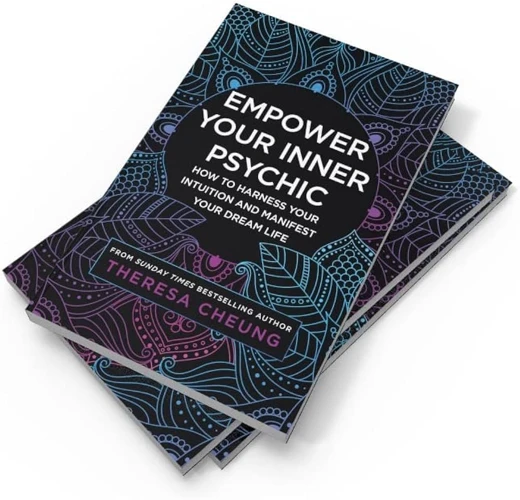
Nurturing and enhancing our intuition is essential for harnessing its full potential and deepening our self-discovery process. Cultivating mindfulness and presence is a powerful practice to connect with our intuition. By being fully present in the moment, we create space for the whispers of our intuition to be heard. Engaging in regular meditation can also help quiet the mind and cultivate a receptive state, allowing intuition to surface more readily. Additionally, creative activities, such as painting, writing, or playing an instrument, can open up channels for intuitive insights to flow. These activities tap into our subconscious and bypass analytical thinking, enabling our intuition to shine through. Finally, journaling and self-reflection serve as valuable tools for exploring our inner world and gaining clarity on our thoughts, emotions, and intuitive nudges. Through these practices, we can strengthen our intuitive abilities and develop a deeper connection with our inner wisdom.
1. Cultivating Mindfulness and Presence
One effective way to nurture and enhance our intuition is by cultivating mindfulness and presence in our daily lives. Mindfulness involves being fully present and aware of our thoughts, feelings, and sensations in the present moment, without judgment or attachment. When we strive to cultivate mindfulness, we create space for our intuition to emerge and guide us. Here are some practices to help cultivate mindfulness and presence:
1. Meditation: Engaging in regular meditation practice can greatly enhance mindfulness and strengthen our intuitive abilities. Find a comfortable and quiet space, focus on your breath, and let go of any thoughts or distractions. Through meditation, we can quiet the mind, deepen our awareness, and create space for intuitive insights to arise.
2. Deep Breathing: Take moments throughout the day to focus on your breath. Slow down, inhale deeply, and exhale fully. Pay attention to the sensations of your breath entering and leaving your body. This simple practice anchors you in the present moment and opens up space for intuitive awareness.
3. Body Scan: Set aside time to do a body scan meditation. Start from the top of your head and slowly move your attention down to your toes, noticing any sensations, tension, or discomfort. This practice helps cultivate a deeper connection with your body and enables you to be more attuned to the signals and messages it may be sending.
4. Engage the Senses: Throughout the day, take moments to fully engage your senses. Notice the colors, scents, sounds, textures, and tastes surrounding you. By immersing yourself in the present moment through sensory awareness, you create an environment for intuitive insights to arise.
By incorporating these practices into your daily routine, you can foster a greater sense of mindfulness and presence. As a result, you may find yourself more attuned to your intuition and better equipped to navigate the journey of self-discovery. Cultivating mindfulness and presence is just one step in nurturing our intuition. Stay tuned to explore more ways to enhance your intuitive abilities and embark on a transformative path of self-discovery.
2. Practicing Meditation
Meditation is a powerful tool for nurturing and enhancing our intuition. It is a practice that allows us to quiet the mind, cultivate inner stillness, and deepen our connection to our inner selves. Through regular meditation, we create a space for our intuition to flourish. As we sit in silence and observe our thoughts without judgment, we become more attuned to the subtle whispers of our intuition. Meditation helps us to detach from the constant noise and distractions of the external world, allowing us to access the depths of our inner wisdom.
There are various forms of meditation to explore, such as mindfulness meditation, loving-kindness meditation, or guided visualization. The key is to find a technique that resonates with you and to establish a consistent practice. Start by finding a quiet and comfortable space where you can sit undisturbed. Close your eyes and bring your attention to your breath, gently observing each inhale and exhale. As thoughts arise, acknowledge them without getting caught up in them, and return your focus to the breath.
Meditation not only enhances our intuitive abilities but also brings numerous other benefits to our overall well-being. It reduces stress, calms the mind, and promotes mental clarity. Regular practice can also improve focus, creativity, and self-awareness, which are all essential for self-discovery. By incorporating meditation into our daily routine, we create a habit of quieting the mind, cultivating presence, and nurturing our intuition.
Remember, meditation is a personal practice, and it may take time to find your rhythm. Start with short sessions and gradually increase the duration as you become more comfortable. Explore different techniques and approaches, and allow yourself to embrace the stillness and tranquility that meditation offers. Want to learn more about the benefits of incorporating intuitive practices into your life? Check out this informative article that dives deeper into the subject.
3. Engaging in Creative Activities
Engaging in creative activities is a powerful way to nurture and enhance our intuition. When we immerse ourselves in creative pursuits, whether it’s painting, writing, playing an instrument, or dancing, we tap into a flow state that allows our intuition to blossom. Creative activities provide an outlet for self-expression and allow us to access deeper parts of ourselves that may be hidden in our everyday lives. They encourage us to let go of judgment and self-doubt, creating a space where our intuition can freely emerge.
Creative activities also stimulate our imagination, which is closely linked to intuition. As we engage in the creative process, we open ourselves up to new possibilities and perspectives. We allow ourselves to think outside the box and explore alternative ways of seeing the world. This openness and flexibility of mind create the perfect conditions for our intuition to flourish.
Creative activities often require us to be present in the moment. Whether it’s focusing on brushstrokes, finding the right words, or moving our bodies in sync with the music, these activities demand our full attention. By immersing ourselves in the present moment, we cultivate mindfulness, which is a key component of intuitive awareness. When we are fully present, we become more attuned to subtle cues and sensations, allowing our intuition to guide us more effortlessly.
Engaging in creative activities is not only a way to nurture our intuition but also a source of joy and fulfillment. It allows us to tap into our innate creativity and express ourselves authentically. So, whether it’s picking up a paintbrush, writing in a journal, or simply doodling on a piece of paper, give yourself permission to engage in creative activities. Allow yourself to let go, trust the process, and let your intuition guide your creative expression. You might be pleasantly surprised by the insights and self-discovery that unfold in the process.
4. Journaling and Self-Reflection
Journaling and self-reflection are powerful practices that can deepen our understanding of ourselves and enhance our intuition. Through the act of journaling, we create a safe and private space to express our thoughts, feelings, and experiences. This process allows us to gain clarity, process emotions, and uncover patterns or insights that may have been hidden from our conscious awareness. When journaling, it is important to write freely and without judgment, allowing our intuition to guide the flow of words onto the page. By engaging in this introspective practice, we can cultivate greater self-awareness and connect with our intuition on a profound level.
To begin journaling for self-reflection, find a quiet and comfortable space where you can focus without distractions. Set aside dedicated time each day or week to engage in this practice. Start by writing about your experiences, thoughts, dreams, or any other topics that come to mind. Let the words flow naturally without censoring yourself. As you write, pay attention to any recurring themes, emotions, or patterns that arise. These can be valuable insights into your inner world and can help you uncover hidden beliefs, desires, or fears. Reflect on what you have written and ask yourself probing questions such as “Why do I feel this way?” or “What can I learn from this experience?”. Allow your intuition to guide you towards deeper self-understanding and self-discovery.
By regularly journaling and reflecting on our inner experiences, we can begin to identify and trust our intuitive voice. This practice can also help us uncover limiting beliefs or patterns that may be holding us back from embracing our true selves. The insights gained from journaling and self-reflection can then be integrated into our lives, allowing us to make decisions aligned with our authentic selves and to navigate our personal growth journey with clarity and purpose.
Incorporating journaling and self-reflection into our daily lives can be a transformative practice that enhances our intuition and deepens our self-discovery journey. It helps us peel back the layers of conditioning and societal expectations, revealing our true desires, passions, and purpose. So grab a pen and paper, and allow yourself to embark on this powerful and illuminating path of self-reflection through journaling.
Overcoming Obstacles to Intuition
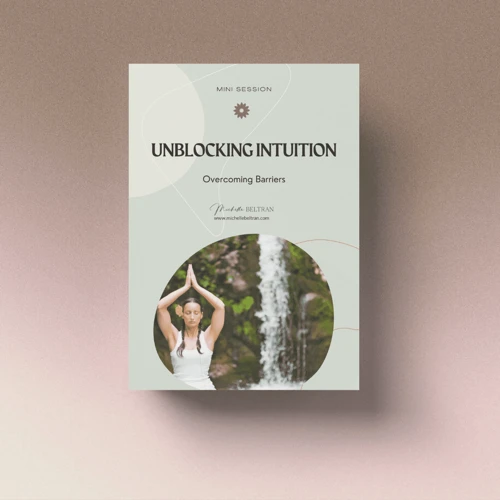
Obstacles can often hinder the flow of intuition, preventing us from fully tapping into its wisdom. One common obstacle is doubt and skepticism, where we question the validity or reliability of our intuitive insights. It is essential to recognize that intuition is not always logical or rational, but it holds its own truth. Overcoming this obstacle requires us to cultivate trust in ourselves and our intuitive abilities. Another obstacle is the fear of making mistakes. We may hesitate to follow our intuition because of the fear of failure or the consequences of deviating from societal norms. However, embracing our intuition means accepting that mistakes can be valuable lessons along our journey of self-discovery. External influences and societal norms can also pose obstacles to intuition. Society often values rationality and logic over intuitive knowing, leading us to ignore or dismiss our inner guidance. Overcoming these obstacles involves developing a sense of confidence in our own intuitive abilities and acknowledging that our unique experiences and insights have value. By consciously working to overcome these obstacles, we can unlock the full potential of our intuition and allow it to guide us on a profound journey of self-discovery.
1. Doubt and Skepticism
Doubt and skepticism can be significant obstacles when it comes to embracing and trusting our intuition. It is natural to question and doubt the validity of our intuitive insights, especially when they go against conventional wisdom or societal norms. The rational mind often seeks tangible evidence and logical explanations, dismissing intuitive guidance as mere coincidence or wishful thinking. However, it is essential to recognize that intuition operates on a different level of understanding, beyond the confines of logic and reason. Doubt and skepticism can hinder our ability to listen to our inner voice and follow its guidance in our journey of self-discovery. To overcome doubt, it is helpful to reflect on past experiences where intuition has proven to be accurate and reliable. Paying attention to these instances can build confidence in our intuitive abilities and strengthen our trust in them. It is also important to cultivate a sense of openness and receptivity, allowing ourselves to embrace the unknown and be receptive to intuitive messages. By acknowledging and accepting our doubts, we can begin to challenge them and open ourselves up to the transformative power of intuition. Remember, embracing uncertainty and allowing space for intuitive insights can lead to profound self-discovery and personal growth.
2. Fear of Making Mistakes
The fear of making mistakes is a common obstacle that hinders our ability to tap into our intuition. This fear stems from our conditioning to believe that mistakes are inherently negative and should be avoided at all costs. However, this mindset limits our growth and prevents us from fully embracing the power of our intuition. When we allow fear to take the reins, we become paralyzed by indecision and second-guess our intuitive insights. It’s important to remember that making mistakes is an essential part of the learning process and can lead to valuable lessons and personal growth.
To overcome the fear of making mistakes and embrace intuition, we must shift our perspective. Instead of viewing mistakes as failures, we can see them as opportunities for growth and self-discovery. By reframing mistakes as learning experiences, we open ourselves up to new possibilities and insights. It’s crucial to cultivate self-compassion and remind ourselves that no one is perfect, and mistakes are inevitable.
Practicing self-reflection and journaling can also help us manage the fear of making mistakes. By examining our past experiences, we can gain valuable insights into the outcomes of our decisions and learn to trust ourselves more. It’s important to remember that our intuition guides us based on our unique experiences and knowledge, which may lead to different outcomes than expected. Through self-reflection, we can develop a deeper understanding of ourselves and acknowledge that mistakes are simply part of our journey towards self-discovery.
Seeking support from others can also be beneficial in overcoming the fear of making mistakes. Sharing our thoughts and concerns with trusted friends, mentors, or therapists can provide a fresh perspective and help us gain clarity. Surrounding ourselves with individuals who understand the importance of intuition can provide encouragement and reassurance when facing the fear of making mistakes.
The fear of making mistakes can hinder our ability to embrace and trust our intuition. By reframing mistakes as learning opportunities, practicing self-reflection, and seeking support, we can overcome this fear and fully harness the power of our intuitive guidance. Remember, the journey of self-discovery is not about being perfect but about embracing imperfection as a stepping stone towards personal growth.
3. External Influences and Societal Norms
External influences and societal norms can have a significant impact on our ability to tap into our intuition. Society often places a strong emphasis on logic, rationality, and conformity, which can overshadow the subtle voice of our intuition. We are bombarded with external expectations, cultural conditioning, and the pressures to fit into certain molds or follow prescribed paths. These influences can create doubt, fear, and skepticism towards our own inner knowing. It’s important to recognize and navigate these external forces that may hinder our intuition in order to truly embrace our own self-discovery journey.
1. Cultural Conditioning: Society often imposes certain beliefs, values, and norms upon individuals, shaping their thoughts and actions. These cultural influences can sometimes conflict with our intuitive guidance, causing us to question our instincts and conform to societal expectations. It’s crucial to critically examine these cultural narratives and consciously choose which ones align with our authentic selves.
2. Fear of Judgment: The fear of being judged or criticized by others can inhibit our ability to trust our intuition. We may hesitate to make decisions or take action based on our inner guidance in fear of not being understood or accepted by those around us. Overcoming this fear requires cultivating self-confidence and embracing our uniqueness, recognizing that our intuition is a valuable tool for personal growth and self-discovery.
3. Comparison and External Validation: Constantly comparing ourselves to others and seeking external validation can cloud our intuition. When we rely too heavily on external opinions and approval, we may lose touch with our own inner compass. Remember that true self-discovery is a deeply personal journey, and comparing ourselves to others only distracts us from our own path.
4. Media and Advertising: The media, including advertising, often bombards us with messages that shape our desires and opinions. These external influences can create unrealistic expectations, leading us to prioritize external factors over our own inner wisdom. Being mindful of the media we consume and questioning societal narratives can help free us from these external influences and reconnect with our intuition.
By becoming aware of how external influences and societal norms impact our intuition, we can consciously make choices that align with our authentic selves. Embracing our uniqueness, questioning cultural narratives, and detaching from external validation are essential steps in overcoming these obstacles and fostering a stronger connection with our intuition. Don’t let external influences hold you back from your own self-discovery journey. Trust in your intuition and forge your own path.
Intuition and Personal Growth
Intuition and personal growth go hand in hand, as intuition serves as a catalyst for profound self-transformation. When we embrace and trust our intuition, we embark on a journey of self-discovery and inner growth. Intuition allows us to tap into our inner wisdom, guiding us towards experiences, relationships, and opportunities that align with our authentic selves. It helps us make decisions that are in line with our values and aspirations, leading to a more fulfilling and purposeful life. As we learn to listen to our intuition, we become more attuned to our own needs and desires, gaining a deeper understanding of who we truly are. This self-awareness empowers us to set meaningful goals, make choices that resonate with our true selves, and take actions aligned with our deepest values. Intuition also plays a vital role in personal development by helping us navigate challenges and overcome obstacles. It provides us with insights and guidance during times of uncertainty, enabling us to make choices that lead to personal growth and transformation. When we honor our intuition, we step out of our comfort zones and embrace new experiences that foster personal development. We become more open to learning, adapting, and evolving, as intuition leads us down uncharted paths that hold tremendous potential for growth. Trusting our intuition also allows us to let go of limiting beliefs and societal expectations, empowering us to embrace our unique strengths and passions. By tapping into our intuition, we unlock the key to unlocking our true potential and living a life aligned with our deepest desires. So, let us embrace the power of intuition and embark on a remarkable journey of personal growth and self-discovery.
Conclusion
In conclusion, embracing and understanding our intuition is a profound pathway to self-discovery. It allows us to tap into our innate wisdom and connect with our authentic selves on a deeper level. By listening to our gut feelings, recognizing patterns and synchronicities, and trusting our inner voice, we gain valuable insights and guidance in navigating our lives. Cultivating mindfulness, practicing meditation, engaging in creative activities, and journaling are effective ways to nurture and enhance our intuition. However, it’s important to acknowledge and overcome obstacles such as doubt, fear of making mistakes, and external influences that can hinder our intuitive abilities. By embracing intuition and integrating it into our daily lives, we embark on a journey of personal growth and self-empowerment. Through intuition, we unlock the door to our true selves, discover our passions, purpose, and potential, and live a life aligned with our deepest desires. So, let us embrace the power of intuition and embark on a transformative journey of self-discovery, driven by the wisdom that lies within us.
Frequently Asked Questions
1. Can everyone develop their intuition?
Yes, everyone has the ability to develop and enhance their intuition. While some individuals may have a natural inclination towards intuition, with practice and awareness, anyone can tap into their intuitive abilities.
2. Is intuition the same as instinct?
No, although both intuition and instinct are forms of inner guidance, they are different. Instinct is a primal and automatic response to external stimuli, while intuition involves a deeper level of insight and understanding that goes beyond immediate reactions.
3. How can I differentiate between intuition and fear?
Intuition often comes from a place of calm and clarity, while fear tends to be accompanied by tension and unease. Intuition provides a sense of knowing and can guide you towards growth and expansion, whereas fear often holds you back from taking action.
4. Can intuition help me in my relationships?
Absolutely! Intuition can offer valuable insights into your relationships, helping you understand the dynamics, identify patterns, and make decisions that align with your true needs and values.
5. Are there any benefits to practicing mindfulness for intuition?
Yes, cultivating mindfulness can enhance your intuition by quieting the noise of the mind and allowing you to tap into your inner wisdom. It helps you become more present and aware, creating a space for your intuition to be heard.
6. Can intuition be developed through creative activities?
Absolutely! Engaging in creative activities, such as painting, writing, or dancing, can help unlock your intuitive abilities. These activities stimulate your imagination, quiet your analytical mind, and allow your intuition to flow more freely.
7. Can external influences affect our intuition?
Yes, external influences, such as societal norms, the opinions of others, or even our own self-doubt, can cloud our intuition. It is important to recognize and separate these external influences from our true intuitive guidance.
8. Can journaling help in strengthening intuition?
Yes, journaling is a powerful tool for self-reflection and can help deepen your connection with your intuition. By writing down your thoughts, feelings, and experiences, you can gain clarity and insights that may reveal intuitive guidance.
9. Can intuition guide us in making major life decisions?
Absolutely! Intuition is a reliable compass when faced with major life decisions. By tuning into your inner voice and trusting your intuitive knowing, you can make choices that align with your authentic self and lead to overall fulfillment.
10. Can intuition be developed along with logical thinking?
Absolutely! Intuition and logical thinking are not mutually exclusive. In fact, when intuition and logical thinking work in harmony, they can enhance each other, resulting in well-informed decisions and a deeper understanding of oneself and the world.

